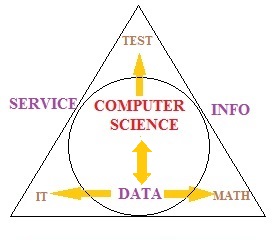Mathematics - Other
Homework Help & Tutoring
We offer an array of different online Mathematics - Other tutors, all of whom are advanced in their fields and highly qualified to instruct you.
Mathematics - Other
Introduction to Problem-Solving in Mathematics
Problem-solving offers students a learning framework for meaningfully understanding mathematical problems, and an entry point for finding the most appropriate method to solving those problems. Problem-solving helps students connect their mathematical knowledge to real-life problems and scenarios. This concept also gives educators the freedom to use different assessment tools and aids them in creating an inspiring and engaging learning environment. Problem-solving is essential because it can help students make various real-life decisions based on their mathematical knowledge. Problem-solving can also make learning mathematics a more enjoyable experience because it encourages flexibility in thinking and promotes cooperative work and creativity.
A Brief History of Problem-Solving in Mathematics
In 1957, Polya first introduced a four-step process that was designed to help teachers assess students’ mathematical problem-solving skills. Poyla’s model suggested that the education system should focus on teaching students how to understand the problem, devise and execute the plan for finding the best solution, and then look back at the whole assignment and verify the solution they obtained. Several decades later, in 2000, the National Council of Teachers of Mathematics (NCTM) published their “Principles and Standards for School Mathematics” which also emphasizes the importance of integrating problem-solving in the everyday mathematics curriculum. This publication states that educators need to facilitate the construction of knowledge through connecting mathematics curriculum with real-life problem-solving tasks. NCTM’s report proposes that assessment needs to become an integral part of mathematical instructions because it can significantly contribute to students’ learning.
Today, education professionals believe that young people need to leave the education system equipped with practical knowledge that enables them to apply mathematical skills and concepts to solve everyday problems. To achieve this goal, the education system has started to introduce assessment across all stages of the learning process. The current mathematics education seeks to ensure students have access to a rich and inspiring learning environment where they have enough opportunities to engage in mathematics problem-solving tasks. The recent reforms of the mathematics curriculum emphasize the need for introducing problem-solving as an important part of all public assessments starting from the first years in school and going all the way through academic education.
Teaching Problem-Solving Skills in Mathematics
According to The Standards of Mathematical Practice, problem-solving in mathematics requires teachers to ensure that students “make sense of problems and persevere in solving them”. To achieve this goal, the teacher can use many different evidence-based teaching practices. In their book “Principles of Action: Ensuring Mathematical Success for All,” NCTM suggests that educators need to establish clear mathematical goals to help students focus on learning. These goals should be adjusted as the learning process progresses and used to guide decisions related to instructions (NCTM, 2014). Research has found that effective teaching in mathematics requires teachers to use problem-solving tasks as one of the ways to motivate students and enhance learning. However, it is important to note that not all tasks equally support the thinking and learning processes. Research also suggests that teachers need to create an environment which constantly promotes high-level thinking skills, because such classrooms support students learning in the best possible way. Teachers need to ensure students use and make connections among mathematical representations in problem-solving to better understand the concepts and procedures. NCTM suggests teachers should facilitate meaningful mathematical discourse which can help students share and compare their approaches to problem-solving thus ensuring the better understanding of the lesson content. It is important that teachers use purposeful questions that can improve and assess students’ understanding of the content, and facilitate learning important mathematical relationships and ideas. Teachers also need to ensure students use their conceptual understanding to advance procedural fluency and become skillful problem-solving experts. Lastly, NCTM suggests teachers need to ensure that students have access to opportunities to engage in productive problem-solving tasks as they learn mathematical content.
Isolating problem-solving from learning mathematical concepts and procedures is one of the greatest challenges associated with teaching the content of this course. Research does not justify the current practice where teachers first explain the new concepts and then introduce simple problems that can be solved using those concepts. This practice present problem-solving as collecting of different strategies and encourages students to try and apply the newly learned concepts to solve real-life problems only if there is enough time left during the class (NCTM, 2010). The issue of neglecting problem-solving in everyday mathematics classroom may successfully be addressed through making problem-solving an essential component of the mathematics curriculum and the learning process.
References
ACME. (2016). Problem-solving in mathematics" realizing the vision through better assessment. Advisory Committee on Mathematics Education. Retrieved from http://www.acme-uk.org/news/news-items-repository/2016/6/assessment-of-problem-solving-report
CCSSI. (2002). Common Core State Standards for Mathematics. Common Core State Standards Initiative. Retrieved from http://www.corestandards.org/Math/
CCSSI. (2017). Standards for Mathematical Practice. Retrieved from Common Core State Standards Initiative: http://www.corestandards.org/Math/Practice/
Education Bureau. (2016). Guiding Principles for Quality Textbooks (Revised June 2016). Retrieved from Education Bureau: http://www.edb.gov.hk/en/curriculum-development/resource-support/textbook-info/GuidingPrinciples/index.html
Gersten, R., & Clarke, B. S. (n.d.). Learning Difficulties in Mathematics. Retrieved from National Council of Teachers of Mathematics: http://www.nctm.org/Research-and-Advocacy/Research-Brief-and-Clips/Learning-Difficulties-in-Mathematics/
Kapur, M. (2014). Productive failure in learning math. Cognitive Science, 38(5), 1008-1022. doi:10.1111/cogs.12107
NCTM. (2000). Principle and standards for school mathematics: Executive summary. National Council of Teachers of Mathematics. Retrieved from http://www.nctm.org/Standards-and-Positions/Principles-and-Standards/
NCTM. (2010). Why is teaching with problem-solving important to student learning? Problem Solving: Research Brief. Retrieved from http://www.nctm.org%2FuploadedFiles%2FResearch_and_Advocacy%2Fresearch_brief_and_clips%2FResearch_brief_14_-_Problem_Solving.pdf
NCTM. (2014). Principles to actions: Ensuring mathematical success for all. Reston, VA: National Council of Teachers of Mathematics. Retrieved from http://www.nctm.org/principlestoactions
Ortiz, E. (2016). The problem-solving process in mathematics classroom. Transformations, 1(1). Retrieved from http://nsuworks.nova.edu/transformations/vol1/iss1/1
Poyla, G. (1973). How to solve it: A new aspect of mathematical method (2nd ed.). New Jersey: Princeton University Press. Retrieved from https://notendur.hi.is/hei2/teaching/Polya_HowToSolveIt.pdf
Rosli, R., Goldsby, D., & Capraro, M. M. (2013). Assessing students' mathematical problem-solving and problem-posing skills. Asian Social Science, 9(16), 54. doi:10.5539/ass.v9n16p54
Sayeski, K., Paulsen, K., & Center, T. I. (2003). Early reading: Case Study Unit. Retrieved October 05, 2016, from https://iris.peabody.vanderbilt.edu/wp-content/uploads/pdf_case_studies/ics_earrd.pdf
Singleton, S. M., & Filce, H. G. (2015). Graphic Organizers for Secondary Students With Learning Disabilities. Teaching Exceptional Children, 48(2), 110-117.
Wade, C., Sonnert, G., Sadler, P. M., & Hazari, Z. (2017). Instructional experiences that align with conceptual understanding in the transition from high school mathematics to college calculus. American Secondary Education, 45(2), 4.
To fulfill our tutoring mission of online education, our college homework help and online tutoring centers are standing by 24/7, ready to assist college students who need homework help with all aspects of mathematics. Our mathematics tutors can help with all your projects, large or small, and we challenge you to find better online mathematics tutoring anywhere.
College Mathematics - Other Homework Help
Since we have tutors in all Mathematics - Other related topics, we can provide a range of different services. Our online Mathematics - Other tutors will:
- Provide specific insight for homework assignments.
- Review broad conceptual ideas and chapters.
- Simplify complex topics into digestible pieces of information.
- Answer any Mathematics - Other related questions.
- Tailor instruction to fit your style of learning.
With these capabilities, our college Mathematics - Other tutors will give you the tools you need to gain a comprehensive knowledge of Mathematics - Other you can use in future courses.
24HourAnswers Online Mathematics - Other Tutors
Our tutors are just as dedicated to your success in class as you are, so they are available around the clock to assist you with questions, homework, exam preparation and any Mathematics - Other related assignments you need extra help completing.
In addition to gaining access to highly qualified tutors, you'll also strengthen your confidence level in the classroom when you work with us. This newfound confidence will allow you to apply your Mathematics - Other knowledge in future courses and keep your education progressing smoothly.
Because our college Mathematics - Other tutors are fully remote, seeking their help is easy. Rather than spend valuable time trying to find a local Mathematics - Other tutor you can trust, just call on our tutors whenever you need them without any conflicting schedules getting in the way.






